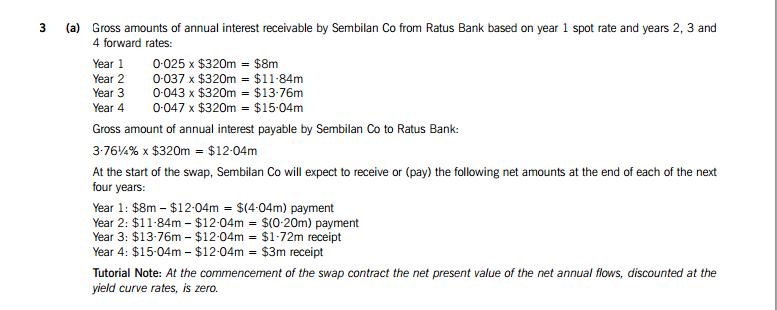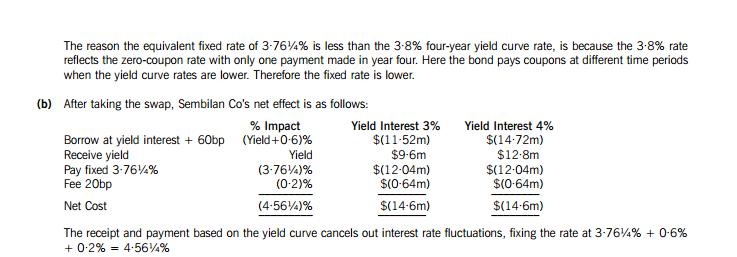

(c) Reducing the amount of debt by issuing equity and using the cash raised from this to reduce the amount borrowed changes
the capital structure of a company and Sembilan Co needs to consider all the possible implications of this.
As the proportion of debt increases in a company’s financial structure, the level of financial distress increases and with it the
associated costs. Companies with high levels of financial distress would find it more costly to contract with their stakeholders.
For example, they may have to pay higher wages to attract the right calibre of employees, give customers longer credit periods
or larger discounts, and may have to accept supplies on more onerous terms. Furthermore, restrictive covenants may make
it more difficult to borrow funds (debt and equity) for future projects. On the other hand, because interest is payable before
tax, larger amounts of debt will give companies greater taxation benefits, known as the tax shield. Presumably, Sembilan Co
has judged the balance between the levels of equity and debt finance, such that the positive and negative effects of gearing
result in minimising the required rate of return and maximising the value of the company.
By replacing debt with equity the balance may no longer be optimal and therefore the value of Sembilan Co may not be
maximised. However, reducing the amount of debt would result in a higher credit rating for the company and reduce the scale
of restrictive covenants. Having greater equity would also increase the company’s debt capacity. This may enable the company
to raise additional finance and undertake future profitable projects more easily. Less financial distress may also reduce the
costs of contracting with stakeholders.
The process of changing the financial structure can be expensive. Sembilan Co needs to determine the costs associated with
early redemption of debt. The contractual clauses of the bond should indicate the level and amount of early redemption
penalties. Issuing new equity can be expensive especially if the shares are offered to new shareholders, such as costs
associated with underwriting the issue and communicating or negotiating the share price. Even raising funds by issuing rights
can be expensive.
As well as this, Sembilan Co needs to determine the extent to which the current shareholders will be able to take up the rights
and the amount of discount that needs to be given on the rights issue to ensure 100% take up. The impact on the current
share price from the issue of rights needs to be considered as well. Studies on rights issues seem to indicate that the markets
view the issue of rights as a positive signal and the share price does not reduce to the expected theoretical ex-rights price.
However, this is mainly because the markets expect the funds raised to be used on new, profitable projects. Using funds to
reduce the debt amount may not be viewed so positively.
Sembilan Co may also have to provide information and justification to the market because both the existing shareholders and
any new shareholders will need to be assured that the company is not benefiting one group at the expense of the other. If
sufficient information is not provided then either shareholder group may discount the share price due to information
asymmetry. However, providing too much information may reduce the competitive position of the company.
(Note: credit will be given for alternative relevant comments and suggestions)